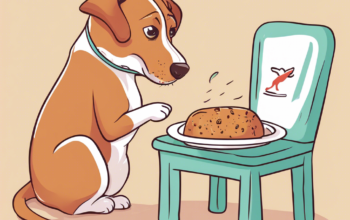Welcoming a new Chow Chow puppy into your family is an exciting and rewarding experience. As a responsible dog owner, it’s essential to provide your puppy with a well-balanced diet that meets their nutritional needs for healthy growth and development. Chow Chows are prone to obesity and other health issues, making it crucial to establish a healthy diet plan from an early age. In this article, we’ll explore the essential nutrients and dietary requirements for Chow Chow puppies, providing you with a comprehensive guide to creating a healthy diet plan.
Nutritional Requirements for Chow Chow Puppies
Chow Chow puppy require a balanced diet that includes protein, fat, carbohydrates, vitamins, and minerals. Protein is essential for muscle growth and development, with a recommended level of 22% on a dry matter basis. Fat is also crucial for energy and skin health, with a recommended level of 8-12% on a dry matter basis. Carbohydrates provide fiber, vitamins, and minerals, but should be limited to avoid excessive sugar intake. Vitamins and minerals, such as vitamin D, calcium, and phosphorus, are essential for bone growth and development.

Choosing the Right Food for Your Chow Chow Puppy
With so many puppy food options available, choosing the right one for your Chow Chow can be overwhelming. Look for a high-quality puppy food that meets the nutritional levels established by the Association of American Feed Control Officials (AAFCO). Consider a puppy food specifically formulated for large breeds, as Chow Chows are prone to obesity and require a balanced diet to maintain a healthy weight. Avoid generic or store-brand puppy foods, as they may contain fillers and by-products that can be detrimental to your puppy’s health.
Feeding Schedule and Portion Control
Chow Chow puppies need to be fed frequently to maintain stable energy levels and support growth. Divide your puppy’s daily ration into 3-4 meals until they are six months old, then gradually switch to twice a day. Monitor your puppy’s weight and adjust their food intake accordingly. Overfeeding can lead to obesity, while underfeeding can result in malnutrition. Use a measuring cup to ensure accurate portion control, and avoid overfeeding treats, which can add calories and compromise your puppy’s diet.
Hydration and Water Intake
Adequate hydration is essential for Chow Chow puppies, especially during hot weather or exercise. Ensure your puppy always has access to fresh, clean water, and monitor their water intake to prevent dehydration. You can also add water to their meals to encourage hydration and make mealtime more enjoyable.
Avoiding Common Dietary Mistakes
As a responsible dog owner, it’s essential to avoid common dietary mistakes that can compromise your Chow Chow puppy’s health. Avoid over-supplementing with vitamins and minerals, as this can lead to toxicity. Don’t feed your puppy table scraps or human food, as this can create unhealthy eating habits and lead to obesity. Also, avoid switching puppy food too frequently, as this can cause digestive upset and compromise your puppy’s nutritional intake.

Monitoring Your Chow Chow Puppy’s Health
Regular veterinary check-ups and monitoring your puppy’s health are crucial to ensure they are receiving the necessary nutrients for healthy growth and development. Keep an eye on your puppy’s stool quality, energy levels, and coat condition, as these can indicate nutritional deficiencies or excesses. Consult with your veterinarian if you notice any adverse reactions or concerns, and adjust your puppy’s diet accordingly.
Conclusion
Providing your Chow Chow puppy with a well-balanced diet is essential for healthy growth and development. By understanding the nutritional requirements and dietary needs of your puppy, you can create a comprehensive diet plan that meets their needs. Remember to choose a high-quality puppy food, monitor your puppy’s weight and hydration, and avoid common dietary mistakes. With proper nutrition and care, your Chow Chow puppy will grow into a healthy, happy, and well-adjusted adult dog.
